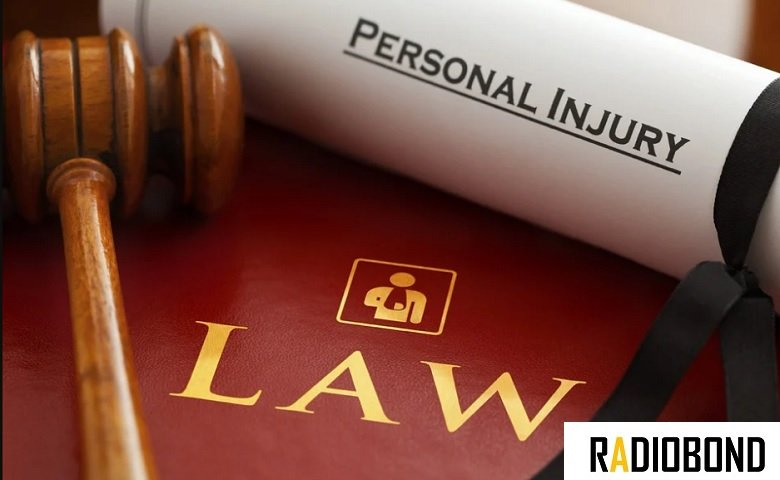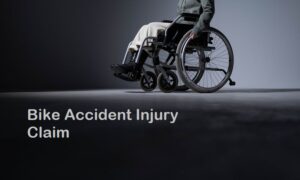How Much Can You Really Get From a Car Accident Personal Injury Claim?

Did you know that every year 3 million people in the U.S. experience a car accident injury?
Some car accident injuries may be mild, but others can harm your quality of life long term and cause great trauma. Depending on how severe a car accident is, you may be able to get a significant personal injury claim amount from your settlement.
Continue reading this article to learn more about personal injury claims, personal injury claim settlement amounts, and how to best prepare for your case.
Typical Payout Amounts
There are a lot of different injuries that can come from car accidents, but below are some of the most common ones and what type of money you might expect.
Whiplash
Whiplash happens after sudden acceleration and deceleration that makes your neck go back and forth quickly. It’s not usually life-threatening, but it can be very painful and make it difficult to move.
With whiplash, you may get anywhere from $2,000 to $3,000 plus medical expenses if it isn’t severe. If it is severe, you may get $4,000 plus medical expenses, and if your medical bills are very high, you may even get around $20,000 for a whiplash injury.
Soft Tissue Injury
Soft tissue injuries are when muscles, tendons, or ligaments of different parts of your body are injured. Some of these injuries are injuries like muscle sprains, muscle strains, tendinitis, and other similar injuries.
If you can recover from your soft tissue injuries within a few months, you may be looking at $10,000, but when you require injections or treatments, it’s possible to get around $25,000. If your condition harms you throughout your life, then you could get anywhere from $50,000 to $100,000.
Severe Injury
Severe injuries are where people get the most amount of money—because of more medical bills, more pain and suffering, and more overall loss.
Some of the severe injuries include but aren’t limited to:
- Head injuries
- Broken ribs
- Internal bleeding
- Herniated discs
- PTSD
- Loss of limb
If you experience any of these things, you may need to speak to an attorney after a car accident to get help determining how much money you should as for in your settlement case.
How Insurance Companies Fight Your Case
Insurance companies aren’t happy about paying out on claims. In fact, the fewer claims they pay out on, the more money they make.
Since this is the case, they are not afraid to put money out to retain and use the best attorneys possible. Below are some of the most common ways these lawyers will work to make sure you don’t get the compensation you want from your claim.
Saying It Was Your Fault
If the car insurance company can prove that the accident was your fault, they don’t have to pay. This is why it is extremely important that you don’t say anything about the fault of your insurance company or anyone else.
When you have to answer questions from the insurance company, do your best to keep quiet and only answer with “yes” or “no,” as much as possible. You never know when you might say something they can use against you in court.
Saying You’re Partly At Fault
Some states allow more than one party to be at fault in car accidents. If they can prove you’re 50% or more at fault in the accident—they don’t have to pay.
In the states that have these laws, if they can prove you’re 1%-49% at fault, they can decrease their payout by that amount.
Battling Over Injuries
Insurance companies also love to use the strategy of battling over your injuries. They will say that your injury isn’t worth as much as you’re asking, that you didn’t get the appropriate treatment, or they might even say the injury isn’t related to the car accident.
When you’re up against something like this—you need an attorney.
How Long Does a Car Accident Lawsuit Take?
There is a great variance of how long a car accident lawsuit could take. The biggest thing that weighs on the length of your case is how complex it is.
If your case is straight forward—like when you get rear-ended—it likely won’t take too long to settle. This is especially true if all documents and details are easy to access.
On the other hand, if there is a dispute about who is at fault or the facts in the case, then the case can move ahead at a snail’s pace. Discovery is one of the main places where you might experience hold up during the case.
Another delay can be dealing with severe injuries that might take a long time to determine how severe they are. Many times, people have to be out of work for two years before they’re allowed to be considered disabled.
The caseload in your area also plays a role in how long it can take to finish up your case. There are a lot of people involved with your case, so prepare to learn patience throughout this process.
What are Pain and Suffering?
During this process, you’re likely to come up against the term pain and suffering quite a few times. Understanding pain and suffering and how it plays into your case will allow you to have a clearer understanding of why you might or might not get the compensation you want.
Pain and suffering can refer to both current and future bodily discomfort, but it can also refer to mental pain and suffering.
Such things as emotional distress, fear, anger, anxiety, and shock go under this umbrella.
The more severe and life-altering pain and suffering is, the bigger your settlement could be. Make sure, to be honest about how your injuries affect your life and what you can and can’t do now vs. before the accident.
Increasing Your Chances of a Fair Payout
There are simple things you can do to make sure you get a fair payout when you file a car accident personal injury claim.
The more of these things you do, the more likely it is that you get a fair payout as quickly as possible.
Address Medical Concerns Quickly
One of the most important things you can do is ensure you address medical concerns quickly. In fact, even if you aren’t sure if you have serious injuries, you should get to a medical professional right away.
Keep in mind that insurance companies will listen to medical doctors over alternative healthcare professionals. When you have a medical doctor on your side, you have a better chance of getting a good payout from your case. If you use alternative healthcare professionals, the insurance company might argue that you didn’t do everything within your power to get well.
Provide Proper Documentation
There are basic documents you need to have to help your case hold up in court. Things like police reports, damage quotes for vehicles, and diagnoses, and treatment option recommendations from medical professionals will help the insurance adjusters get an overall picture of your case.
The more well-organized you are, the easier it will be for them to review your case. Your goal should be to make it as simple as possible for the adjuster to go through your case for an easy decision. In some cases, the adjuster might agree with your calculations, and your case might not need to go to court.
Don’t Exaggerate
If you embellish your injuries or the severity of the crash, you could hurt your credibility. Make sure you answer all questions honestly—but again—keep in mind that you don’t need to elaborate.
Sometimes it is best to let people draw their own conclusions. Remember that anything you say can be used against you during a court hearing.
If you lie under oath, this is even more serious, so always make sure to state things as they happened for the best results.
Consulting With an Attorney
If any of your case information confuses you, it’s best to speak with an attorney. They have likely seen many cases that are just like or similar to your case.
Getting recommendations and best practices from a legal professional could help you get thousands of dollars extra in compensation that you might have missed otherwise. Keep in mind that attorneys do take a chunk of your settlement if they help you win.
Settling Your Personal Injury Claim
Now that you know what is at stake with your personal injury claim, it’s important to follow the information above and speak to an attorney to get the most out of your claim. As you can see, there are many different laws regarding car accidents, and they vary depending on the state you’re in.
Do you want to learn more about car accident law? Continue through our blog.

















